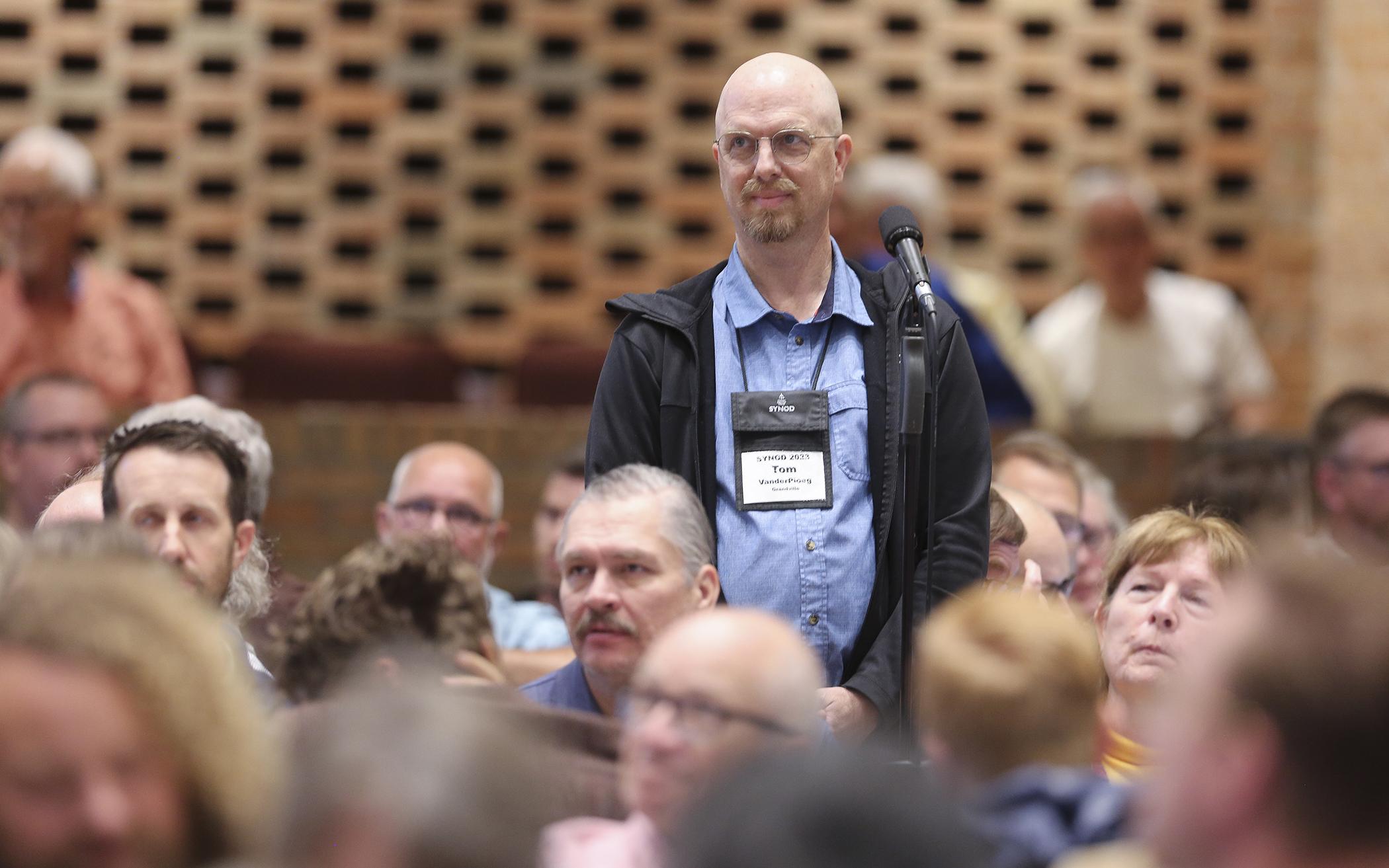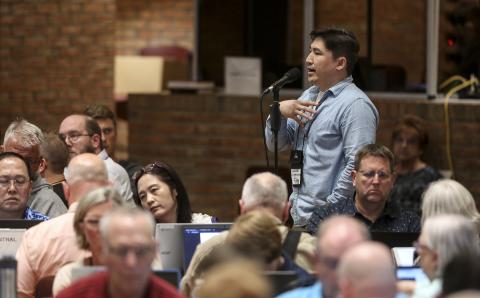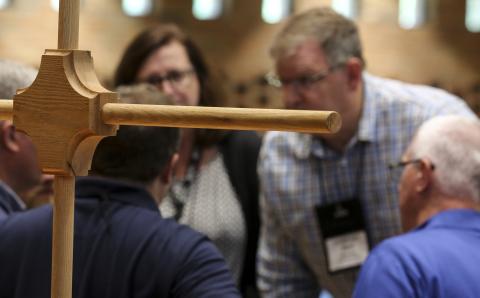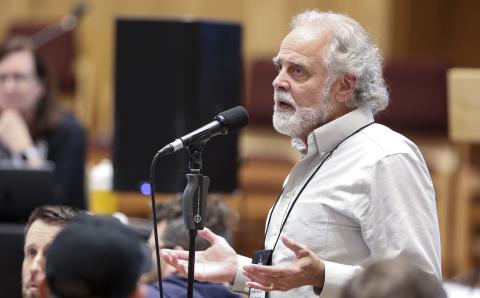By a majority of over 75%, Synod 2023 voted to adopt a code of conduct for ministry leaders in the Christian Reformed Church.
The code aims to prevent abuse of power in CRC churches by “(clarifying) for ministry leaders what is required for healthy and safe ministry, and (communicating) to parishioners what they can expect from ministry leadership,” according to its introduction.
“I will speak and act, in all my personal and professional relations, in ways that follow the pattern of Christ, who used his power to serve,” is one of the affirmations in the adopted Code of Conduct.
Synod also affirmed—with a unanimous vote—that “the Code of Conduct is subservient to Scripture and our Confessions, and must be interpreted and utilized accordingly.” And synod proposed two additions to the Church Order that state that all officebearers and ministers must adhere to the standards summarized in the Code of Conduct. Adherence would not require a signature, unless the local council implementing the Code required it. Those changes must be adopted by Synod 2024 before they’d be active.
That would be almost six years after the Addressing Abuse of Power Committee, created by Synod 2018, expressed a need to develop a Code of Conduct for ministry personnel. Synod 2019 called for that among its responses to the abuse of power report. The Council of Delegates adopted the report and brought it to Synod 2022 for implementation. (No synods took place in 2020 or 2021 due to the COVID-19 pandemic.) Synod 2022 asked for more time for the churches to consider the Code.
“In abuse, one person uses power to harm, manipulate, or control another person,” reads a definition from the CRC’s Safe Church office. “In addition to more blatant sexual and physical abuse, emotionally abusive behaviors such as coercion, intimidation, threats, isolation, and blaming can be equally devastating.”
An advisory committee of Synod 2023 labored to make the code palatable to some delegates who were skeptical of it. Four classes (regional groups of churches) sent formal requests (overtures) requesting that synod reject the proposed Code of Conduct, and two others also submitted overtures critical of it. The overtures criticized the Code of Conduct for being “one-sided and an overreach,” (see Overture 9 in the 2023 Agenda for Synod) and for being unnecessary since Scripture, the confessions, the Church Order, and the Covenant for Officebearers are already in place (see Overture 6), among other contentions.
The advisory committee added a lengthy introduction to the draft of the code published in the 2023 Agenda for Synod, adapting part of what had been an attached FAQ. “We moved to give it a much better heart,” said Ryan Braam, Classis Quinte, who served as reporter for the advisory committee. “We added the introduction to clarify that the Bible is the ultimate authority, and we also used the introduction to set a safe and flourishing tone.” Besides the introduction, only a few minor wording changes were made.
“A document like this is only necessary in a low-trust environment,” said Patrick Anthony, Classis Central California. “One group doesn’t trust the denomination, one group doesn’t trust the pastors. This document is evidence of the tension in our denomination.”
“It’s true that we have a low-trust church,” said Blake Campbell, Classis Illiana. “But we do have to consider the creation of this document was spurred on by people who have been hurt. We are called to bear with the weaker brother. To the extent that we can bear with them, I think we should.”
“Abusers don’t know in their own minds that they are being abusers,” said Tom VanderPloeg, Classis Grandville. “If having a code of conduct helps us to clarify what is abuse, then it is needed.”
“This document is for everybody who is not yet part of our church to see that we have a code of conduct, because they don’t know us yet,” said Martheen Reinders, Classis Toronto.
Delegate Heather Strooboscher, Classis Grand Rapids North, said she values the work of the Safe Church ministry. She asked Amanda Benckhuysen, Safe Church adviser, to explain why the Code of Conduct is needed.
“We do have people in the CRC who have experienced abuse,” said Benckhuysen. “I get calls two or three times a week asking ‘How do we deal with this situation?’”
Many of the calls she receives do not require serious action and might only require an apology, Benckhusen explained. “I am so sorry I brought you harm—that acknowledgement goes a long way where harm has been done.” Other times, her office helps find a way for churches to “move toward a healthier culture,” she said.
Synod “encourages councils and classes to implement the Code of Conduct for all staff (non-ordained as well as ordained) and volunteers who are providing leadership in the church or classis,” according to the statement that synod adopted regarding the code.
About the Author
Roxanne VanFarowe is a freelance writer who claims both Canadian and American citizenship and grew up in the Christian Reformed Church. She is a member of Blacknall Presbyterian Church in Durham, North Carolina.









